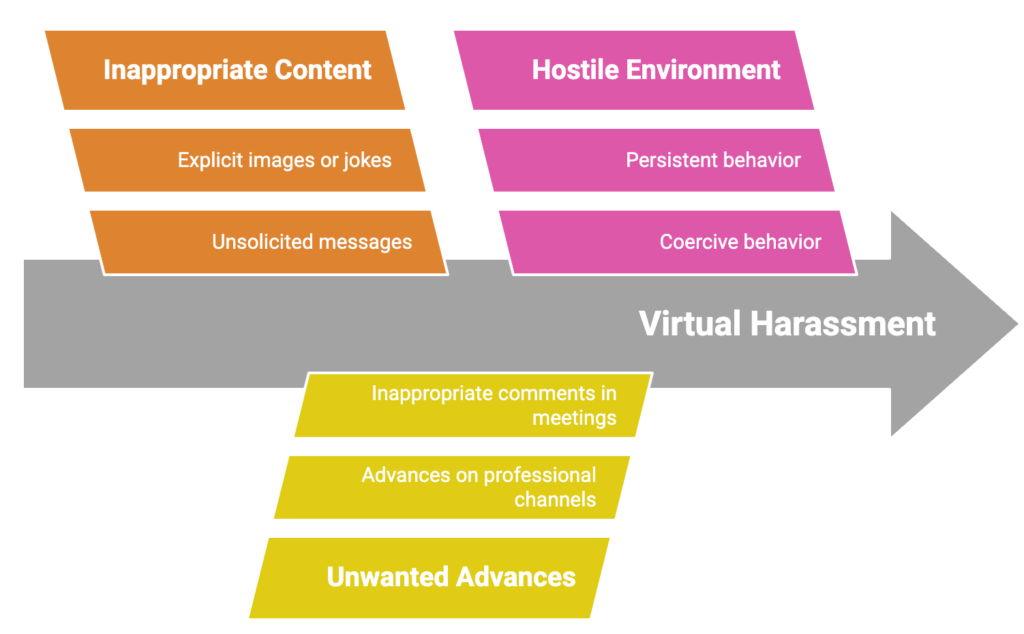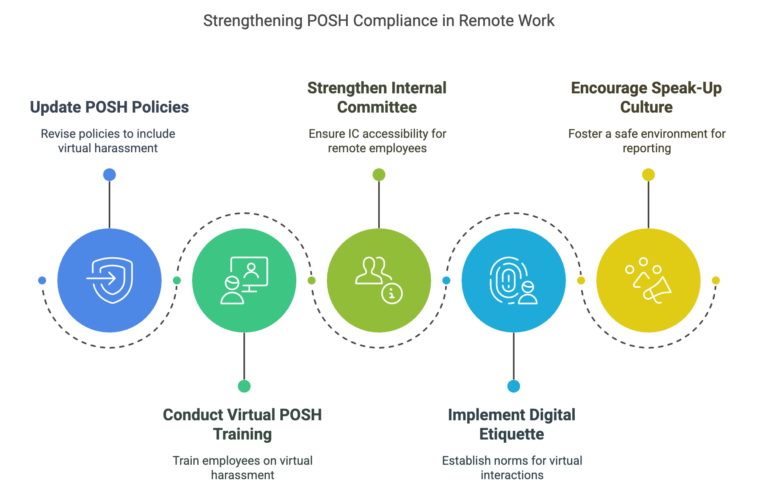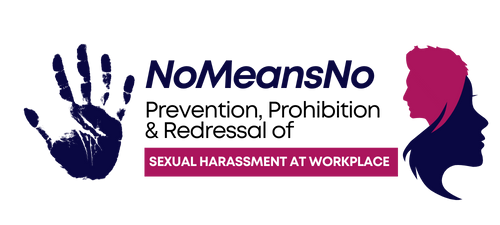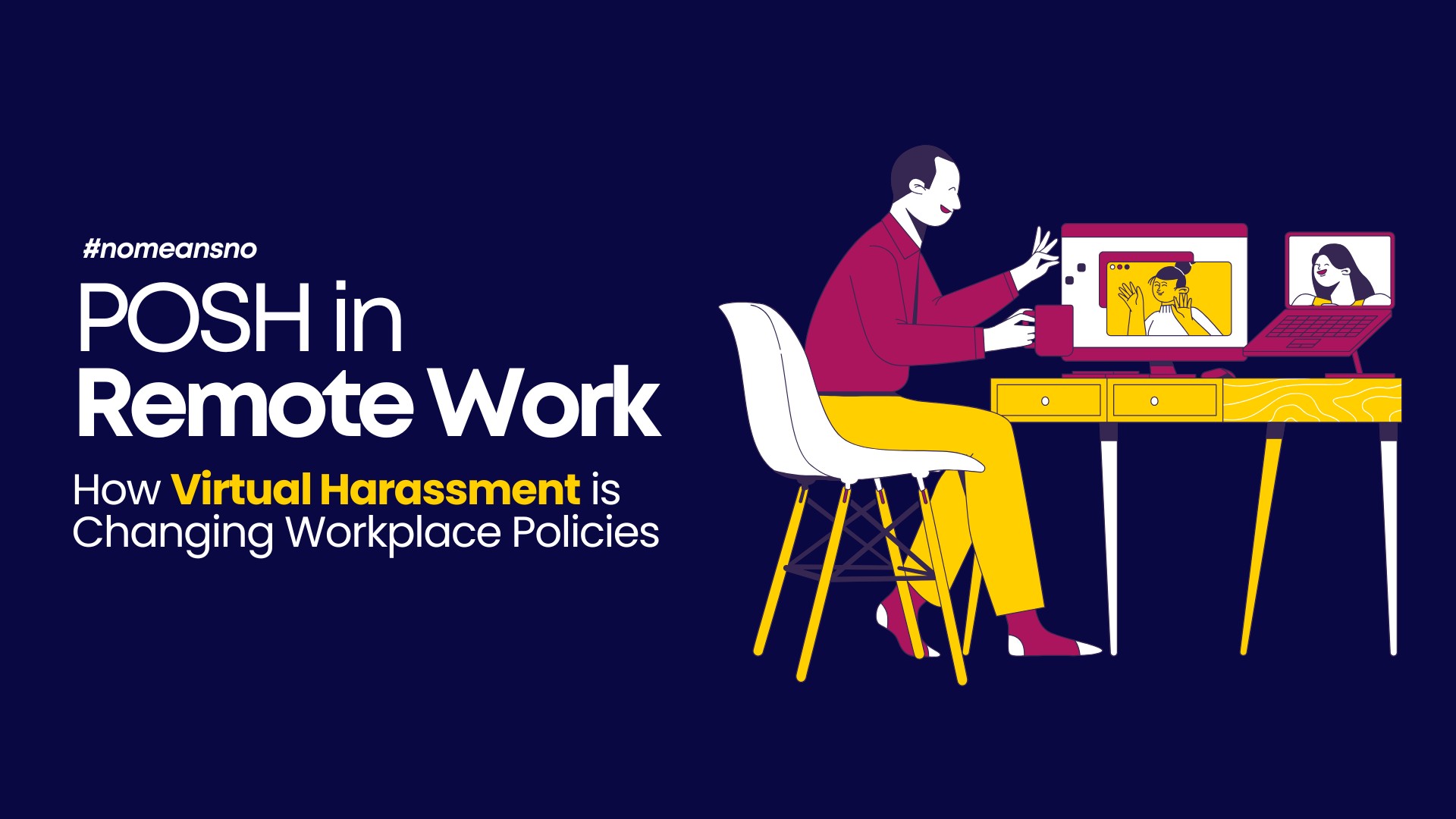The Rise of Virtual Harassment in the Remote Work
The transition to remote work has reshaped the corporate landscape, bringing flexibility and convenience. However, it has also led to new challenges, including virtual harassment. As workplaces adapt to digital operations, the POSH in remote workplace conversation becomes more important than ever. The Prevention of Sexual Harassment (POSH) Act must evolve to address these emerging risks. Understanding what constitutes virtual sexual harassment and how organizations can mitigate these risks is crucial in creating a safer work environment.

What is Virtual Harassment?
Virtual harassment refers to any form of unwelcome behavior that occurs through digital communication platforms, including emails, video calls, messaging apps, and professional networking sites. It can manifest in various forms, such as:
- Unsolicited messages containing inappropriate content
- Unwanted advances on professional communication channels
- Inappropriate comments during virtual meetings
- Sharing explicit images or jokes in online forums
- Persistent or coercive behavior that creates a hostile work environment
The Legal Landscape: Does POSH Cover Virtual Harassment?
The POSH Act, 2013, primarily focuses on physical workplaces but its principles extend to virtual spaces as well. The Act defines the workplace broadly, including any location where employees perform work-related duties, which applies to home offices and digital workspaces.
In light of increasing virtual harassment cases, companies must ensure their POSH policies explicitly address POSH in remote workplace settings. This includes updating their definitions of workplace harassment to cover online misconduct and reinforcing employee awareness about digital workplace behavior.
Why Organizations Need to Act Now
With remote work becoming the norm, organizations need to be proactive in preventing virtual harassment. Failing to do so can lead to legal consequences, reputational damage, and decreased employee morale. A well-defined POSH policy for remote work can help mitigate risks and foster an ethical work culture.
How Organizations Can Strengthen POSH Compliance in Remote Work
- Update POSH Policies to Include Virtual Harassment
Companies must revise their sexual harassment policies to explicitly mention and define virtual harassment. Clear guidelines on inappropriate online behavior will help employees understand what is acceptable and what is not. - Conduct Regular Virtual POSH Training
Awareness is the first step towards prevention. Employees, managers, and HR professionals should be trained to recognize and address harassment in virtual spaces. Tailored training that includes case studies and scenarios involving POSH in remote workplace contexts can be particularly effective. - Strengthen Internal Committee (IC) Awareness & Accessibility
Organizations must ensure their Internal Committees (ICs) are accessible to employees working remotely. Virtual grievance redressal mechanisms, including online reporting systems and virtual hearings, should be implemented. - Implement Digital Communication Etiquette Guidelines
Establishing workplace norms for virtual interactions can help prevent misconduct. This includes guidelines for professional communication, online meeting decorum, and reporting mechanisms for inappropriate behavior. - Encourage a Speak-Up Culture
Employees should feel safe reporting harassment without fear of retaliation. Organizations should foster an open environment where victims and witnesses can raise concerns confidentially.

NoMeansNo: A Trusted Partner in POSH Compliance
As organizations navigate the complexities of POSH compliance in remote work, partnering with experts ensures a structured and legally sound approach. NoMeansNo, a highly recommended POSH training and consulting firm in India, has been instrumental in helping companies build harassment-free workplaces. With 100K+ POSH e-learning users, 260+ live investigations, and 850+ clients, their expertise is unparalleled.
Recognized by the Ministry of Women and Child Development, NoMeansNo offers comprehensive learning solutions, including:
- POSH Training & Compliance Support
- Gender Sensitization & Breaking Stereotypes
- Equality, Diversity & Unconscious Bias Training
- POSH Investigation Assistance
The Future of POSH in the Digital Workplace
As remote work continues to evolve, organizations must prioritize digital safety and ethical workplace culture. By proactively addressing virtual harassment and ensuring robust POSH compliance, businesses can protect their employees while fostering trust and respect.
The digital era presents both opportunities and challenges. While remote work offers unparalleled flexibility, it also necessitates a strong framework to address virtual harassment. Companies must take a proactive approach by updating policies, conducting regular POSH training, and leveraging expert guidance to ensure a safe, respectful, and compliant workplace.
#NoMeansNo






